

All Cruises and Charters
Party yacht & pirate ship cruises in washington dc.
- MOST POPULAR!
- Hour Glass 2 hours
Boomerang Yacht Cruise
Enjoy a 21+ cruise aboard the Boomerang Party Yacht which includes premium open bar, water, sodas, pre-packaged snacks, fun music, and amazing DC views.
Pirate Ship Cruise
Enjoy a 21+ cruise aboard the Boomerang Pirate Ship which includes premium open bar, water, sodas, pre-packaged snacks, fun music, and amazing DC views.
- Hour Glass 1 hour
- Users All ages
Family Fun Treasure Hunt Cruise
Ahoy there, young pirates! Get ready to embark on our interactive cruise, offering endless excitement and the perfect adventure for kids of all ages!
Private Boomerang Boat Charter
Our charters are perfect for any private party occasion like birthdays, work parties, engagement parties, graduation parties, wedding welcome parties, post wedding brunch cruises, corporate team building, and more!
Boomerang Sightseeing Cruise
Our one-hour sightseeing tour on the Potomac River promises to be an informative, entertaining, and visually captivating experience.
Boomerang Yacht Brunch Cruise
Embark on a captivating Brunch Cruise on the Potomac River with Boomerang Boat Tours! Indulge in a delicious brunch buffet catered by Northside Social, sip on cocktails from our premium open bar, and groove to tunes spun by our live DJ.
Our carefully designed Washington, D.C. cruises offer uninterrupted, awe-inspiring views of the city’s historic skyline, both during the day and under the moonlit sky. Step aboard one of our three unique vessels: a 100-passenger party yacht, an 80-passenger pirate ship, or a 60-passenger party boat. All three of our vessels are double-deckers equipped with a cutting-edge sound system, complete bars featuring a diverse and creative drink menu, 2-3 conveniently located bathrooms, a welcoming and friendly crew, and versatile indoor and outdoor spaces. We’ve thought of everything to ensure your comfort and enjoyment on board!
What You Can Experience
When you go boating in D.C. with Boomerang Boat Tours, you’ll experience a luxurious ride on yachts decked out with bars serving creative cocktails and a knowledgeable crew to keep you safe and informed. Whether you want a private boat charter for a wedding party or you’re going on a pirate ship cruise with the kids, our Potomac boat tours provide an excellent time for anyone on a Washington, D.C. excursion.
What You Will See
Our guides show you some of the most beautiful rivers in this country. Below are some of the sites you’ll see when you sign up with Boomerang Boat Tours in Washington, DC:
- Potomac River: Take a ride on the Potomac River, where you’ll get to view some of America’s proudest monuments. Our founding fathers built their dreams around this majestic river and clearly found a plethora of inspiration in the surrounding area. The Potomac produces a pleasant flowing current that will carry us along effortlessly so you can see America’s finest works, as well as a migrating dolphin if you’re really lucky!
- The Washington Monument: When on a Boomerang Boat Tour in Washington, DC you will definitely see the beacon of democracy that is the Washington Monument piercing the sky with all its might and grace. When it was built in 1884, it was the tallest building in the world and it still stands as a reminder that the United States is built on groundbreaking ideas that prove to the world anything is possible when freedom is the goal.
- The Lincoln Memorial: Our Washington, DC, boat tour will pass by the awe-striking Lincoln Memorial, a statue that has invoked epiphanic ideas among the people of this country since 1922 and will continue to do so for generations of Americans to come.
- Georgetown Waterfront: Georgetown waterfront is one of the oldest preserved places of commerce in the United States. It’s filled with shops and bars like Founding Farmers Fishers and Bakers or Fiola Mare, where you can get some exquisite cuisine while looking out over the Potomac River. From the river, you can see Hilltop, a famous part of the oldest catholic and Jesuit institute of higher education in America, Georgetown University.
Book With Boomerang Boat Tours
Schedule your exciting boat tour through Washington, D.C., with us. We always show our customers an amazing time with respect and fun.
Sightseeing and Dining Cruises
City cruises.
City Cruises (formerly known as Hornblower Cruises & Events) offers water experiences beyond compare. Choose from a variety of cruises including: dinner cruises, brunch cruises, lunch cruises, cocktail cruises, sightseeing cruises, and holiday cruises. All of the vessels are conveniently docked at The Wharf, giving you the perfect launch point to explore the nation’s capital from the water.
Odyssey Savor delicious entrees and desserts as this glass-enclosed vessel drifts by the sights—accompanied by a relaxing atmosphere and live music.
Spirit of Washington Cruises A unique mix of dining, entertainment, and views, Spirit of Washington offers offers lunch, dinner, and holiday cruises, plus a variety of themed cruises.
Elite Private Yachts Host your own event or plan an unforgettable jaunt on the Potomac by chartering one of our two private yachts. Our sleek vessels are the perfect backdrop for weddings and other special occasions.
Water Taxi Come to The Wharf’s Transit Pier to catch a ride on the Water Taxi to Georgetown in DC, Old Town Alexandria in Virginia, or National Harbor in Maryland—and enjoy the scenic views of the nation’s capital from the Potomac. Sightseeing Cruises See the famous monuments of Washington, DC from an entirely new perspective on this narrated sightseeing cruise. You’ll travel along the Potomac River while taking in breathtaking views of the Washington monuments and famous landmarks.
Sightseeing cruises depart from Transit Pier (970 Wharf St SW). Dining cruises (all others) depart from Pier 4 ( 580 Water St SW ).
Learn about Getting to The Wharf , including metro and parking directions.
Get Your Fill at The Wharf
Fresh seafood is a given on the waterfront. But The Wharf offers more, including a wide selection of distinctive choices for food, drinks, and entertainment while you eat. Watch the chefs prepare your meal. Listen to music. Or just people-watch while you savor the flavors of The Wharf.
Do It All on the Waterfront
Whether you like to be on the Potomac or prefer the sparkling views from land, The Wharf offers ample things to do and ways to enjoy the water. Dine in one of our fabulous restaurants. Browse our shops. Or join us during one of our festivals. Take a look at our upcoming events to plan your next visit.

CAPITOL RIVER CRUISES
Celebrating over 30 years on the potomac, what we offer, our sightseeing tours are our most popular. cruise down the potomac river while enjoying historical narration on the landmarks, monuments and memorials. our vessels are also available for private charters great for any type of event, we've done it all.

Sightseeing Tours

Private Charters

Crab Feast Charters
(Only available for private charters)

Specialty Cruises
Our Gallery

Capitol River Cruises is a small family owned and operated Tour Boat Agency that has been cruising on the Potomac River in Washington, DC for 29 years!
We offer Sightseeing Boat Tours, Crab Feast Charters, Custom Private Charters and various types of Specialty Cruises. Our everyday Sightseeing Cruises are 45 minutes long. We depart every hour on the hour from Washington Harbor in Georgetown, cruise past the 14th St. Bridges and turn around near Ronald Reagan Washington National Airport. You'll learn all about the history of Washington, DC monuments, memorials, statues and the surrounding area. Our crab feast charters & custom private charters are perfect for company outings, birthday parties, bachelor/bachelorette parties, celebrations, etc. Any type of event really, we've done it all!
What our customers had to say!
Had an awesome time. Great way to let your feet rest from all the walking. We even got to bring our pup & he loved it. Had a nice glass of wine and enjoyed the breeze from the water. I recommend this tour it’s a different way to see the monuments and memorials without walking a million miles.
-Alexis Suarez
We had an amazing time! We scheduled the Crab Boat for a ladies day out on the Potomac. The crew was very friendly and funny. The Captain played great music. The crabs were delicious! Even the side dishes were good. The weather was perfect. We would definitely cruise with them again.
-S. Haskins
Sightseeing Guide


Party Boat DC Online Reservations
Concierge or booking agent, buy gift certificates online, reservation / cancellation policy.
Reservations cancelled at least 7 Days prior to the ride will be fully refunded. Reservations cancelled with more than 24 hours notice prior to the ride will not be refunded, but a raincheck will be given for another date. Reservations cancelled less than 24 hours of the ride will not receive a refund nor a raincheck. We cruise rain or shine! The only weather situations in which we may have to cancel and refund your tour is during a Severe Weather Warning (Thunderstorm, Tornado) per the National Weather Service and occuring during the time of your tour.
Policy Notices
No flammable materials are allowed on board (no cigars, cigarettes, other smoking products, fireworks, candles, etc) No jumping off the boat. This will result in the immediate cancellation of the cruise and a $1000.00 fine. There will be no refund and the tour will immediately return to dock. No standing is allowed in certain areas of the boat including the front bench seat. No standing on any railings as this increase the chances of falling overboard. All passengers must Sign a waiver . These rules are for your safety and are strictly enforced.
Cookies and Privacy
This website uses cookies. Cookies help us personalize content and understand how visitors use our website. By browsing this website, you agree to our use of cookies.
By using this website or making a reservation with us, you agree to our privacy policy .

- Search Experiences
- Manage Booking
- Phone # SMS #
- My Offers 5
Washington DC Group Events
Washington DC
Group events.
Request Info
Host Your Group Event on the Water!
Reviews | Vessels | Call Us
Experience the city’s most unique floating event venue! City Cruises offers all-inclusive packages, chef-prepared menus, full bar options, and entertainment customized to fit your needs—all with picturesque views from our climate-controlled interior and open-air outdoor decks. From corporate events , social events , weddings , and educational outings , it’s better on the water!
Tell Us About Your Event
After form submission, you’ll receive a customized offer from an experienced Account Manager matching your event vision.
or Call 1-800-459-8105
Event Details

Corporate Events

Social Outings
What our guests are saying, be the first to get offers and news, shopping cart, find your experience.
Follow Eater DC online:
- Follow Eater DC on Twitter
- Follow Eater DC on Facebook
- Follow Eater DC on Youtube
- Follow Eater DC on Instagram
Site search
- Los Angeles
- New Orleans
- Philadelphia
- Portland, OR
- San Francisco
- Twin Cities
- Washington DC
- Neighborhoods
Filed under:
Where to Book Booze Cruises of All Kinds in D.C.
Seasonal offerings on the Potomac include tailgating excursions to Nats Park, sunset Champagne on the dock, and everything in between
Share this story
- Share this on Facebook
- Share this on Twitter
- Share All sharing options
Share All sharing options for: Where to Book Booze Cruises of All Kinds in D.C.
/cdn.vox-cdn.com/uploads/chorus_image/image/73291670/DSC_3124.0.jpg)
This spring, D.C. docks are home to a surge of drinking vessels designed for every occasion, vibe, and price point. A returning line of retro motor boats are apparently the ticket to getting engaged, with seven proposals out on the water last year. Want to watch dolphins give birth on the Chesapeake this summer? One hotel offers an excursion for that. And a fancy sailboat manned by a fine-dining chef pairs tasting menus with French wines.
Soak up monumental views along the Potomac River, drink in tow, with this running list of bookable boats.
Sea Suite Cruises
Co-founders and Arlington natives Jack Walten and Jack Maher’s first BYOB paddle pub debuted in 2018. Six years later, their supersized fleet is made up of 13 boats bobbing around Mid-Atlantic waterways (in D.C., Baltimore, Annapolis, and Richmond), plus floating tiki bars. And a landlocked bar born in Clarendon is the muse for one of their hottest new bookings this season:
Whitlow’s on Water
Now the largest boat in Sea Suite Cruises’ fleet, the 48-passenger tiki tour is the product of a fun new partnership with Whitlow’s owner Jon Williams. His iconic Clarendon dive moved to Shaw, but its original tiki rooftop on Wilson is reincarnated as a floating bar. “Whitlow’s on Water has taken the [Potomac] by storm,” says Sea Suite’s Jack Walten, noting it’s pretty much sold out almost every Saturday through the summer. Diehard Whitlow’s regulars, which includes the “Jacks,” have a familiar face on board: a former bartender from its Clarendon days handles the liquid lineup. Standard mixed drinks join beers, wines, High Noon seltzers, orange crushes, and rum punches. There’s also a selection of pub grub (sandwiches, wings, etc.) sourced from Whitlow’s.
:no_upscale()/cdn.vox-cdn.com/uploads/chorus_asset/file/25409287/DSC_3010.jpg)
Two TVs air “whatever people want to watch,” he says, which has included everything from March Madness to the Bachelorette (bachelorette parties are popular bookings, after all). As are corporate teams, birthdays, Whitlow’s fans, and even 50-year wedding anniversaries. Individual tickets are also available, to “mix and mingle like you would in a normal bar,” he says. Sea Suite caters to Washington Nationals fans with a traffic-free cruise from Georgetown to the Yards Marina, docking just in time to walk over for the first pitch. “Tailgating on a tiki boat, it doesn’t get better than that,” he says.
Price: Ticket tiers start at $24 and up for daily options that include individual or group sightseeing tours, tiki taxis, private charters, or “Nats Sailgate” ( book online).
Where: Pick-ups and drop-offs in Georgetown in front of Fiola Mare ( 3100 K Street NW ) and Yards Marina by District Winery (1492 4th Street SE )
:no_upscale()/cdn.vox-cdn.com/uploads/chorus_asset/file/25409239/image.jpg)
Retro Boat Rentals
Vintage runabout boats from Sinatra’s time were retro-fitted with electric motors, so having a romantic or intimate conversation is highly possible. It’s no wonder there were multiple (seven) proposals out on the water last year, reports Sea Suite. Each four-top fiberglass beauty sports a different color and name (Gladys, Bonnie, and Violet).
Price: $175-$225 for 1.5-hour tours; BYO drinks and food
Where: Wharf to the Washington Channel
:no_upscale()/cdn.vox-cdn.com/uploads/chorus_asset/file/25409163/AVO_4820.jpg)
Potomac Tiki Club
D.C.’s “first tiki cruise” lets patrons buy booze on board, or opt for an $8 corkage fee for wine and Champagne. BYO food or purchase small snacks.
Price: $45-$60 for parties of 8 to 18 out of Georgetown. A smaller thatched-roof sibling out of Navy Yard fits six and runs $350-$425. Both last 1.45 hours.
Paddle Club Cruises
Sea Suite Cruises’ fleet that started it all is a pontoon pedal boat outfitted with 10 cycle stations (or just let the motor power the party). BYOB (just no hard liquor) or purchase on-board beverages like canned Cutwater ($4-$8.50).
Price: $35-$55 for groups of 8 to 16 for 1.45-hour tours
Where: Docks from the Wharf, Navy Yard, and Georgetown
Sea Table DC Aboard Cru Classé
Chef and sommelier Troy Knapp makes Michelin-level menus on his luxury sailboat Cru Classé. Back at the Wharf for its third year , the detail-oriented captain brings fine-dining to the dock with artfully plated courses, decadent floral arrangements, seafaring table settings, and French wines he pours himself. Knapp also mans other Wharf vessels for parties of six or more, partnering with Nautiste to offer dining excursions with his catering company Curated.
Choose from three different experiences this season (book via TOCK ):
:no_upscale()/cdn.vox-cdn.com/uploads/chorus_asset/file/25408984/IMG_6140.jpg)
- Cruise Experience (April through October): Set sail for up to three hours while enjoying four to six courses comprised of ingredients from local farms and fishermen. Complemented by prestigious wine pairings. Starting at $430 per guest
- Dockside Experience (April, May, September, and October): Savor four to six courses with sommelier-selected wines while docked at the Wharf’s marina for up to two hours. Starting at $180 per guest
- Oyster Sails (June, July, and August): Enjoy local bivalves, freshly shucked by an oyster expert on board, alongside specialty accompaniments. Paired with Champagne or prestige white wine. Starting at $225 per guest
Where: Docks at the Wharf ( 650 Wharf Street SW )
Pendry on the Potomac
:no_upscale()/cdn.vox-cdn.com/uploads/chorus_asset/file/25409296/d57fc361_74e7_4e54_8f68_7cbe232de3c7.jpg)
The most baller option of the bunch by far, the Wharf’s luxe Pendry hotel offers guests a captain-chartered Aviara cruise that’s available to the public for the first time. Parked in its own slip right out front of the Southwest Waterfront hotel, onboard food and beverage offerings include Champagne and caviar service supplied by Pendry’s culinary team. Bar selections, beer or wine, and appetizers can be customized, depending on the parties’ preference. Excursions near and far include round trips to Nationals home games and an all-day adventure to the Chesapeake Bay to spot marine life. As it turns out, dolphins use the Potomac and Bay as a nursery to birth their calves — a rare event that happens from mid-June to mid-August when the water is warmest. Kicking it up at full speed (35-40 knots), hat-holding patrons will jet downstream through Old Town, Fort Washington, and Mt. Vernon and (hopefully) see the annual occurrence.
Price: $3,600 (3 hours); $4,600 (4 hours); $6,000 (6 hours); $7,800 (7 hours) for up to six; reserve here .
Where: Outside of the Pendry ( 655 Water Street SW ) at the Wharf Marina
Watergate Charter
:no_upscale()/cdn.vox-cdn.com/uploads/chorus_asset/file/25414551/watergate_spring_charter__1_.jpg)
Staycation alert: the historic Watergate Hotel offers guests 90-minute scenic tours of the Tidal Basin aboard a private power boat chartered by a captain. Upon check-in, guests get a welcome amenity and a Polaroid camera to capture their day on the Potomac. Bring your own beverages and snacks or order Watergate’s picnic basket for two stocked with cherry blossom-themed macarons, a charcuterie board, and a bottle of Veuve Clicquot. Available for stays through the summer (September 2).
Where: Docks from the Georgetown Harbor; view booking details here .
More From Eater DC
Sign up for the newsletter eater dc.
Sign up for our newsletter.
Thanks for signing up!
Check your inbox for a welcome email.
Oops. Something went wrong. Please enter a valid email and try again.

Rasa, D.C.’s Go-To Destination for Indian Bowls, Enters the Wraps Game

La Grande Boucherie Makes a Jaw-Dropping Entrance Into D.C.

NYC Institution Cafe Fiorello Is Expanding to D.C.

Nama Ko, Logan Circle’s ‘No-Rules’ Japanese Restaurant, Suddenly Shutters
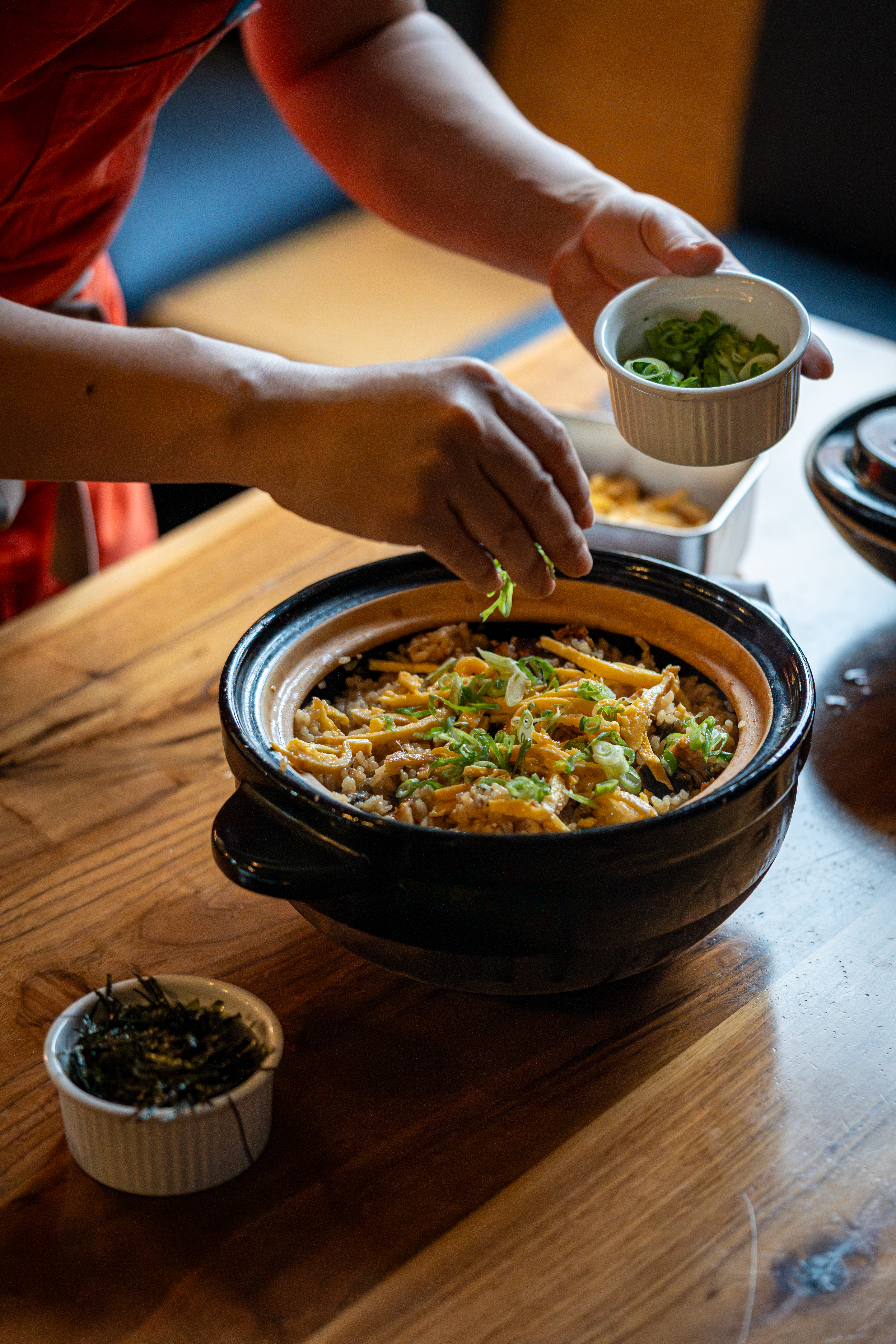

D.C.’s Newest James Beard Nominee Wows With This Unique Japanese Dish
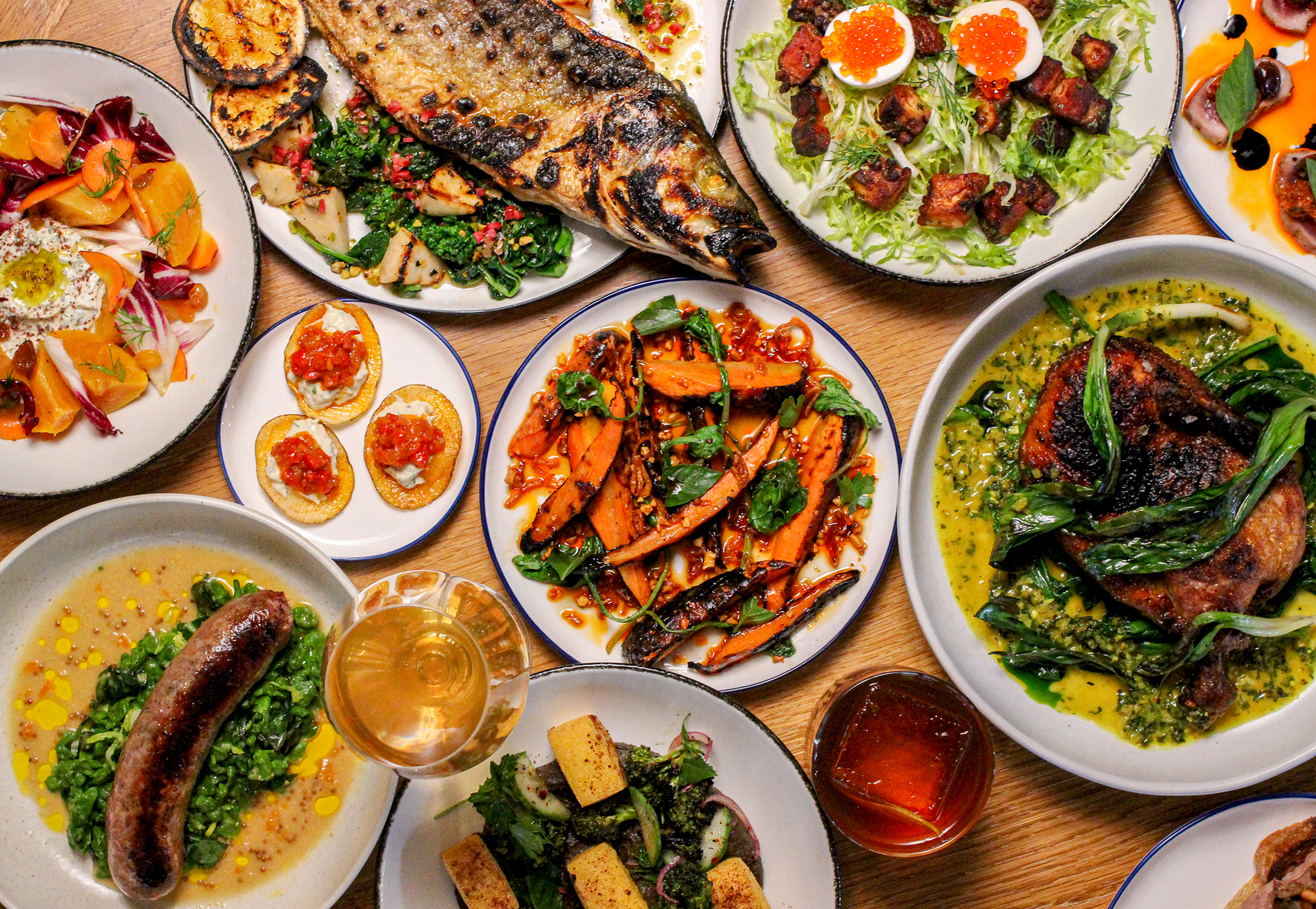
One of Philly’s Best Wine Bars Is Coming to D.C.
Party Boat DC uses cookies to give you the best possible service. If you continue browsing, you agree to our use of cookies. More details can be found in our terms and conditions .
- [email protected]
- (202)-525-7636
- Open Facebook account in a new tab.
- Open Instagram account in a new tab.
Discover More About Party Boat DC
Party Boat DC, formerly known as Capital Riverboats, offers a unique blend of entertainment and scenic exploration on the Potomac River since 2019. Our vessel, the largest cycle boat in the area, boasts an 18-person capacity and 12 pedal stations, ensuring an exciting and active adventure for all guests. Our experienced team has crafted a 90-minute pedal boat tour that promises a unique perspective of Washington DC’s most famous landmarks.
Meet the Team!
We’re proud to have the best Captain and mate crew in DC, they love what they do and are guaranteed to provide a safe and fun pedal boat DC experience for your group on the water! Let’s introduce them to you:
Captain Scott
Captain Scott is a lifelong boater and full-time cruiser with five decades of experience on a range of vessels. He’s looking forward to welcoming your group for a pedal cruise on the Potomac!
First Mate Allison
First Mate Allison has years of experience as a crew member in the greater Washington DC area, and she is in the process of obtaining her Captain’s license as well. She will assist your group throughout your pedal boat tour to ensure you have a safe and fun adventure out on the water!
First Mate Mariah
First Mate Mariah has been enjoying boating all her life, and we are thrilled to have her as First Mate on our Potomac pedal tours. Mariah is excited to welcome you aboard and show you what a cycle boat party is all about!
Get in Touch!
Any questions then please contact our friendly team, they’ll be happy to help answer any query you may have..
Adult Pirate Ship Party Cruise on the Potomac River

- All taxes, fees, and handling charges
- Full bar on board that accepts cash and cards
- 2 hour cruise
- Parking, but there are many street parking spaces and garages throughout Georgetown, for a fee
- Drinks (available to purchase)
- Washington DC, Washington DC, District of Columbia
- Location Name: Washington Harbour (Georgetown Waterfront) Location Address: 3100 K Street NW Washington, DC 20007 Directions: As you walk down 31st Street, the Boomerang yacht will pull up at the end of the dock, to your left. Each commercial vessel has a strict 15-minute boarding window at the Georgetown dock.
- Not wheelchair accessible
- Confirmation will be received at time of booking
- Minimum age is 21 years
- Operates in all weather conditions, please dress appropriately
- This tour/activity will have a maximum of 84 travelers
- For a full refund, cancel at least 24 hours in advance of the start date of the experience.

- Darla509 0 contributions 3.0 of 5 bubbles Smooth ride but ear piercing guide Boat was clean, was a smooth ride, captains were great and friendly. Was hoping for more “cherry blossom tour” but not close enough to the shore to see them. Apparently booked as the “sightseeing tour”.Was very short (knew that going in though). Could not believe how EAR PIERCING the prerecorded tour guide was! Terribly loud too many details that were irrelevant, esp when your ears were bleeding, was like nails on a chalkboard. Read more Written March 25, 2024
- milkywayman 0 contributions 1.0 of 5 bubbles Do not ride The cruise is a large pontoon boat with some pirate paraphernalia. The trip is way overpriced, not worth $65 in the least. The liquor is watered down, bartenders are not friendly and the snacks are cheese it's. It's great for them just raking in the money for a broken down boat and no entertainment. The crew isn't even dressed like pirates, that would help a bit to give the feeling that you are on a pirate ship. For $65 I expected a lot more than just a 2 hour cruise. Will never go again and recommend that you stay away as well. Gave a new meaning to Arrrr. Read more Written September 26, 2022
- LYB78 0 contributions 5.0 of 5 bubbles AMAZING TIME So much fun. Celebrating a friends bday. Great music and drinks. Boat arrived on time and DJ welcomed requests for music. Definitely recommend it. Read more Written October 27, 2019
- vgabe 0 contributions 5.0 of 5 bubbles pirate ship with 3 small kids We had 3 children with us. 5 year old, 3 year old and one just turned 2 . We live at jersey shore and have been on other pirate ships so this is not our first time. I chose it for a few reasons. I need to do something with all of them that would hold their attention and also not too long as to be bore the younger ones. Well from the moment we walked on the ship the crew was engaging and very animated. Jus the right amount of talking combined with game playing and music and pirates treasure chest. the 2 year old loved it as much as the 5 year old. perfect afternoon.. Read more Written October 7, 2019
- yongw750 0 contributions 3.0 of 5 bubbles Fun ride, but Expired snack For the most part, The trip on the Boomerang Yacht party was fun and it would’ve been 4 or 5 stars if not for the incident with the expired “snacks”. First off the DJ was great and played different music and took requests from patrons. We all had fun but I was extremely upset When I found that my snack pretzels were expired (8/10/2019)...today is 9/7/2019 when it happened. I brought it to their attention thinking they did not know...by it seems they did and was selling expired food on purpose? Instead of apologizing, the bartender said “it’s like a week” as if it shouldn’t matter. She did return my two dollars but said “it’s like a week” again. Selling expired anything is NOT okay even if it is one day! I wouldn’t have been this upset if she did not try to defend the situation and that I should be okay with the expired and stale pretzels. That is no way to do business. Read more Written September 7, 2019
- Joe_Wambo 0 contributions 5.0 of 5 bubbles Olé, Olé, Olé We had a very good time, and my kids love it. We are definitely looking for remake or try another cruse. Read more Written August 18, 2019
- Monica B 0 contributions 4.0 of 5 bubbles Surprise birthday ride We had 15 people in our group and we all had an awesome time! The bartenders were great! The DJ was ok; he needed more speakers, it was hard to hear the music on the top deck. It was overall a grand experience! Read more Written August 12, 2019
- PastaBea 0 contributions 5.0 of 5 bubbles Yo ho ho The staff(pirates) were so great with the kids. They loved the games they played as well as the water battles. Really worth the price. Read more Written August 6, 2019
- Sunah L 0 contributions 5.0 of 5 bubbles Fantastic time for kids My 4.5 year old had a blast! The crew was amazing, so fun and enthusiastic. There were plenty of activities to keep the kids entertained. I especially loved the water cannon battle with the bad pirate. It can get very warm on a summer day, but there is some shade and a breeze once the boat is sailing. Read more Written August 5, 2019
- Amanda S 0 contributions 5.0 of 5 bubbles My son had so much fun! We went on the kid's pirate cruise. The crew was really engaged with the kids and my son had a blast. They started by teaching the kids pirate lingo and explained that a bad pirate had stolen the key to the treasure chest. All of the kids were on the lookout for Evil Edgar. When they spotted him, they all shot him with water cannons. There was face painting and temporary tattoos. They also got treasure from the treasure chest after defeating Evil Edgar. There was a limbo contest and fun music for the kids. The only drawback was that there was very little shade on board and it was extremely hot. Be prepared with sunscreen, hats, cool water, etc. Read more Written July 9, 2019
- Sade J 0 contributions 5.0 of 5 bubbles Sunset cruise This was a lit sunset cruise! The DJ was great and the bottle special of $25 for champagne was a good deal. Perfect first date idea.0 Read more Written July 5, 2019
- 7birthdaytravels 0 contributions 5.0 of 5 bubbles Birthday party We rented the boat for a private kids birthday party this weekend. The kids and adults had a blast. The ship was well maintained and adequately staffed for the party. The staff was very friendly and professional. They had well planned activities for the kids. It was well worth the money we spent! Read more Written June 24, 2019
- Charlotte P 0 contributions 4.0 of 5 bubbles Kids had a blast! I took three children ages 7-10 on the pirate ship recently along with several adults. The children really enjoyed themselves as they had water canons to blast, face painting, tattoos, and dancing to keep them occupied. Adults enjoyed watching them have fun plus enjoyed seeing some of the monuments as we cruised into the Potomac River. It was very hot and the only covered seating was in a cave- like area near the concession stand. There was upper level seating which kept us out of the water fight area but was really hot. I am glad we went even if we were a bit sunburned by the end! Read more Written June 21, 2019
- michelyn b 0 contributions 5.0 of 5 bubbles Birthday celebration A night to remember I enjoyed bringing in my 28th birthday with some close friends the setting was perfect ,drinks and pricing were great ,music was on point definitely looking forward to the next time Read more Written June 16, 2019
- MrPeteVirginiaBeach 0 contributions 5.0 of 5 bubbles Great value! I bought a groupon for this- awesome! So much fun! My husband had a great time , it was a surprise for his birthday. Beautiful day, great adventure! Read more Written June 15, 2019
More to explore in Washington DC

Adult Pirate Ship Party Cruise on the Potomac River provided by Boomerang Boat Tours

- Find A Cruise
Whitlow's on Water DC
Locations | Washington DC Area » Whitlow’s on Water
Whitlow's Meets Party Cruise
The only thing better than a bar on the waterfront is a bar on the water ! In collaboration with Sea Suite Cruises, Whitlow’s on Water is the first bar in Washington, D.C. to expand to the Potomac River. As the largest vessel in the Potomac Tiki Club fleet, she brings a whole new WOW factor to DC.
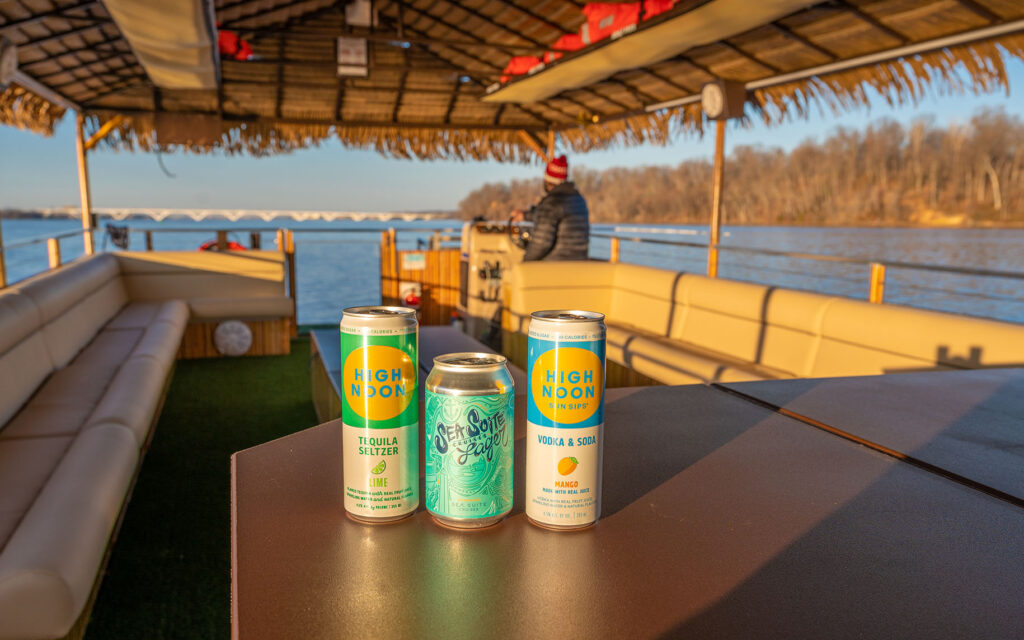
Bartended cruises with a gorgeous view from the water
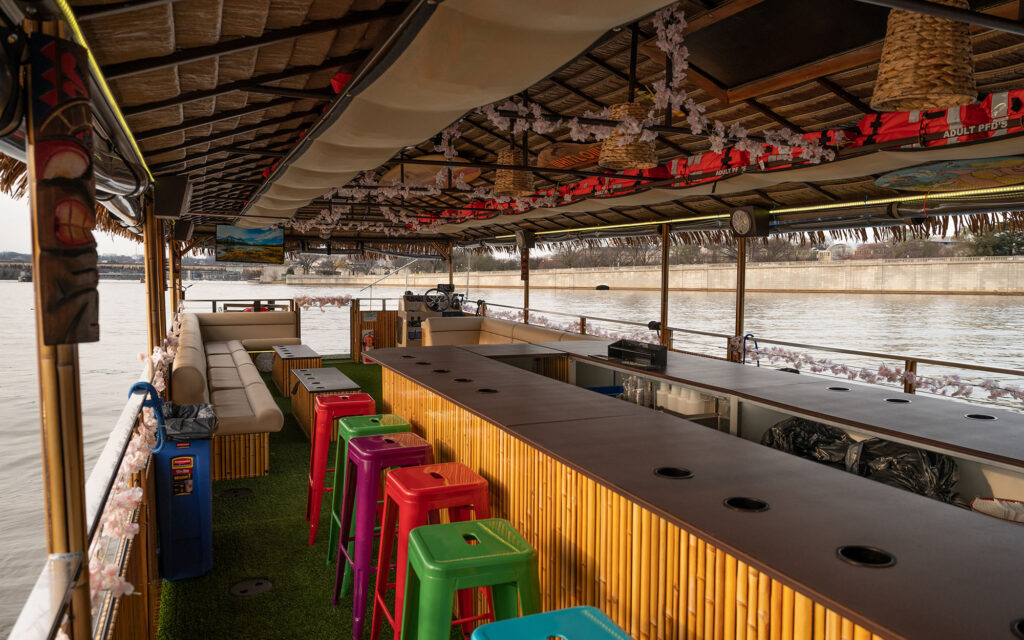
Perfect for large gatherings of up to 48 passengers
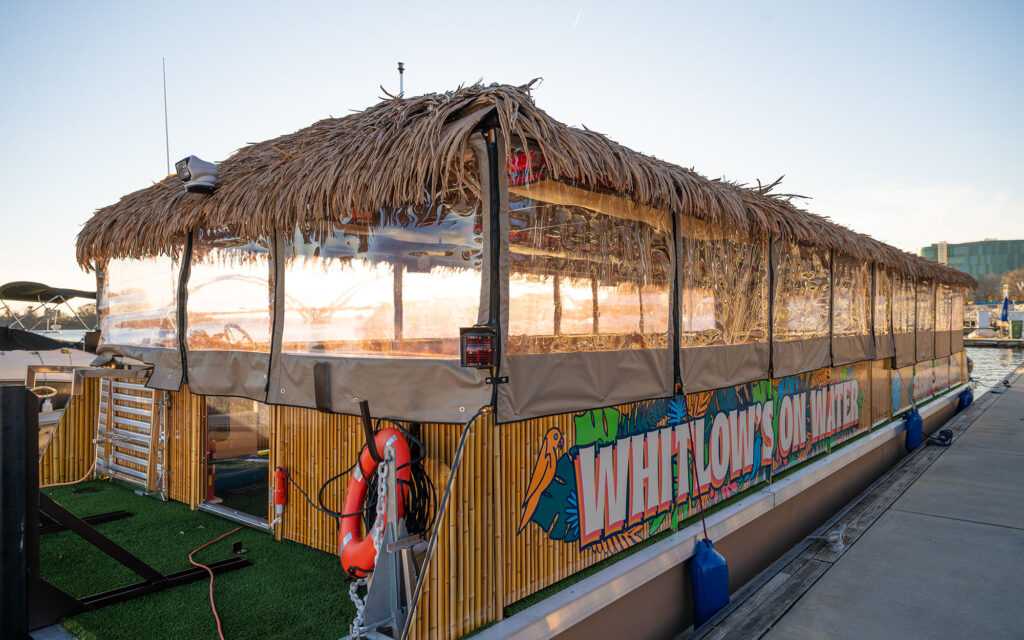
Canopy & retractable window covers to conquer any weather
Tiki bar meets tiki boat.
Whitlow’s on Wilson in Arlington, VA was one of the most popular bars in the region for decades…
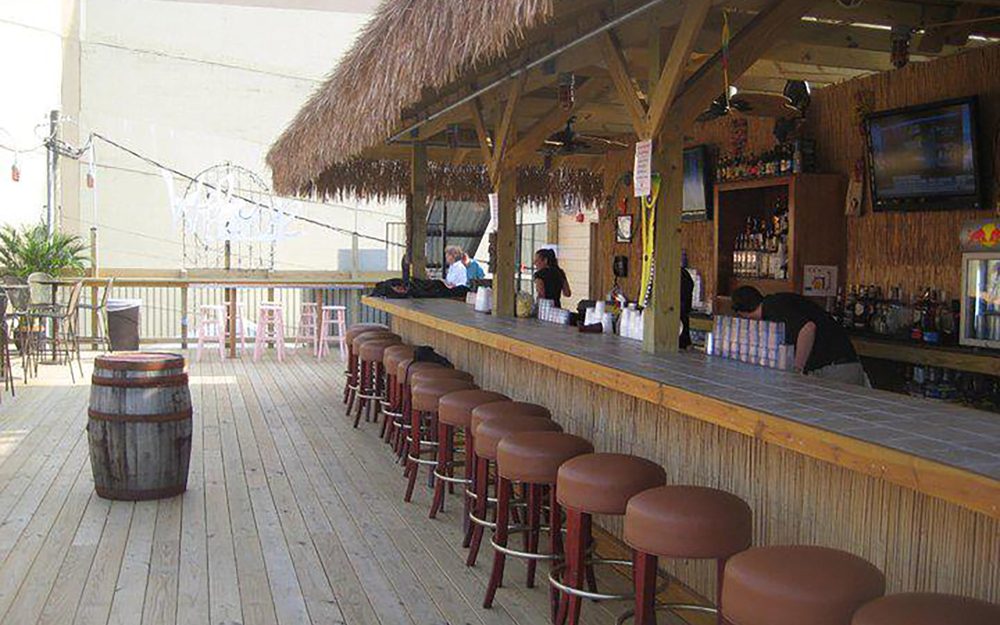
Private Charters, Shared Cruises & Monument Tours
All cruises are staffed by a licensed Master Captain, Deckhand, and a Bartender. The boat is outfitted with seating for 48, surround sound speakers and curated playlists, a bathroom, safety equipment, party lighting, and 2 TV’s for sporting events and watch parties.
Private Rentals
Individual tickets, sightseeing tours, private charters & events.
Perfect for corporate team building, bachelor & bachelorette parties, birthday parties & more!
» Private Charters
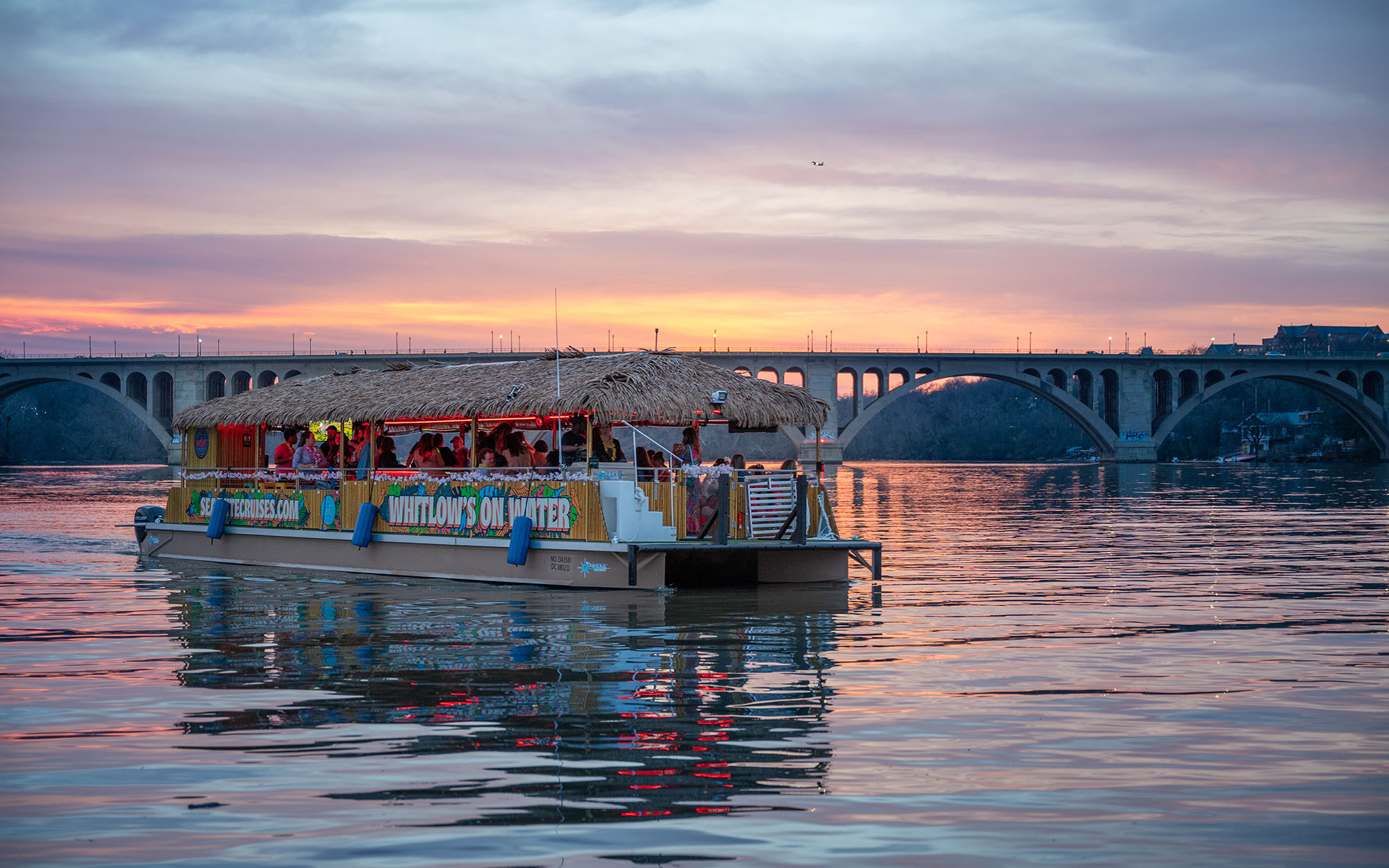
Shared Social Cruises & Mixed Groups
Socialize, mix and mingle on a community cruise by sharing your ship!
» Shared Cruises

DC Monument Boat Tours
Looking for your next adventure? Join us for sightseeing boat tours along the scenic Potomac River!
» Sightseeing Cruises
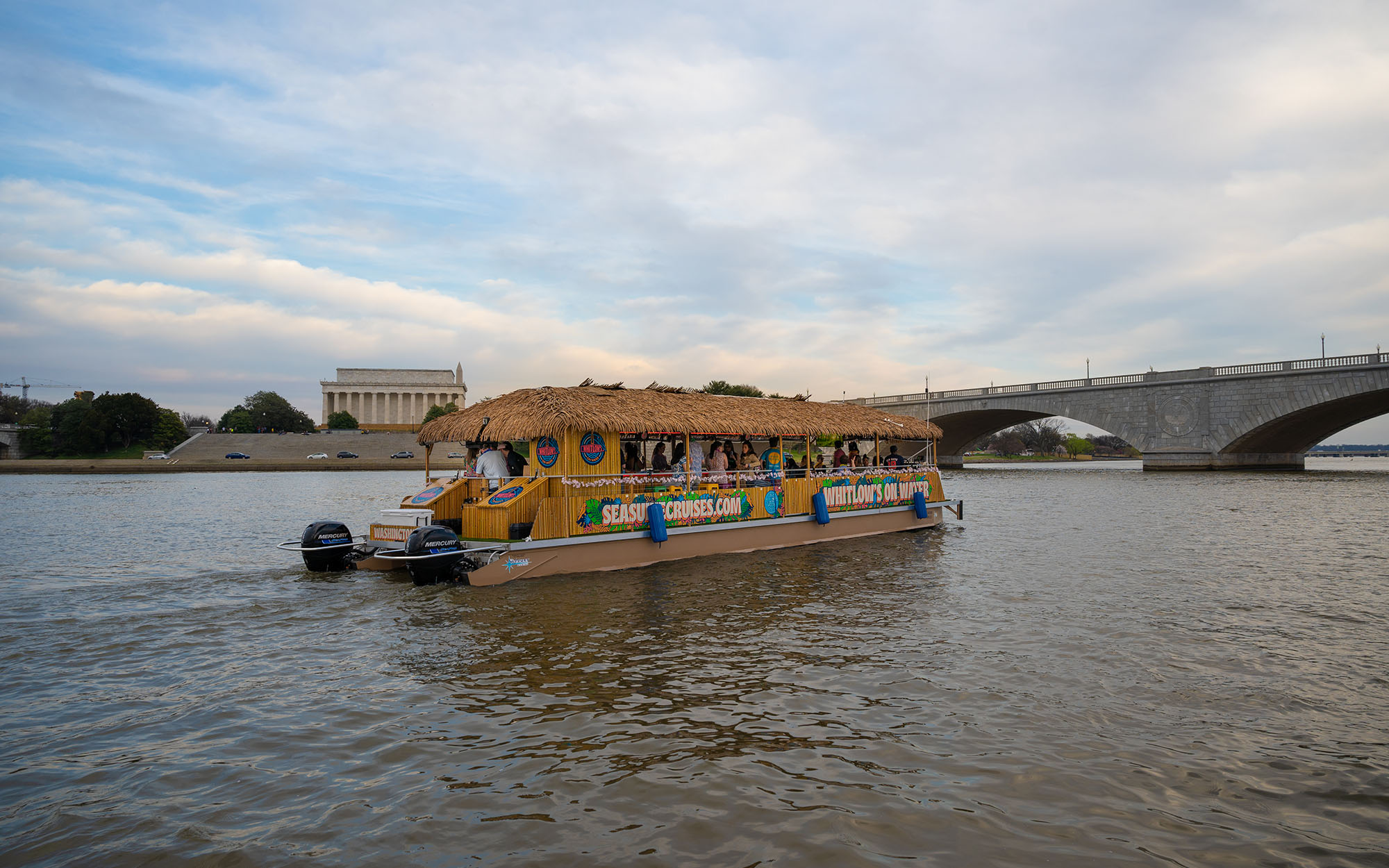
The boat is stocked with a full range of libations including beer, wine, seltzers, and spirits for tropical mixed drinks. For those making lifestyle changes around the way they drink or those who do not drink, we also proudly serve non-alcoholic beverages and zero-proof mocktails. Additionally, we serve soft drinks and Gatorade. For public cruises on evenings and weekends, all passengers (21+) will be offered a complimentary High Noon upon boarding.
Light snacks such as chips are available for purchase on board all cruises. During public cruises and tiki tours, passengers are permitted to bring their own food, but must keep in mind space considerations for shared space with other guests. For private events, we offer catering through Whitlow’s. To learn more about the menu and details, check out private events .
Drink Menu:
(Click to enlarge)
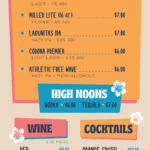
The boat is tailored for groups of 25-48 people, offering an ideal setting for a myriad of private events and complemented by stunning views of the nation’s capital landmarks. Whether it’s a birthday celebration, corporate team-building event, graduation party, bachelor/bachelorette extravaganza, large family gathering, or simply a gathering of cherished friends out on the water, Whitlow’s on Water will leave your guests WOW-ed.
Building on Sea Suite Cruises’ legacy as DC’s favored choice for boat parties of 8-20 passengers for the past 5 years and Whitlow’s legacy as a meeting spot for decades, Whitlow’s on Water emerges in 2024 as the premier destination for unforgettable boat parties on the Potomac.
It’s no secret that DC’s weather can be a little unpredictable. That’s why we designed Whitlow’s on Water to eliminate the guesswork when planning an outdoor event well in advance.
On beautiful sunny days, our open concept with full tiki roof coverage allows you to enjoy the best of the fresh air and river’s breeze without being exposed to the sun’s harsh rays. In less-than-ideal weather, the boat is equipped with retractable Isinglass panels. These panels can be fully or partially closed, providing protection from rain, wind, or colder temperatures, ensuring your group stays comfortable and dry, no matter the conditions. To give you a sense of the fully enclosed experience, imagine an enclosed rooftop bar or a luxury wedding tent—except it’s out on the water.
In the rare event that extreme weather conditions require a change of plans, we’ll collaborate with you and your group to find an alternative space at Whitlow’s DC on U Street or arrange for an alternate date, ensuring you can still enjoy a fantastic outing on the water.
Experience Whitlow's on Water
Elevate your next celebration with the perfect blend of a rousing get-together and a relaxing getaway. Secure your spot today and let the currents of euphoria carry you away.
Georgetown - Weekday Cruises

Private Charters
- Location: Georgetown
- Hours: Mon - Thurs
- Group Size: 25 - 48
- Duration: 1 hr 45 mins
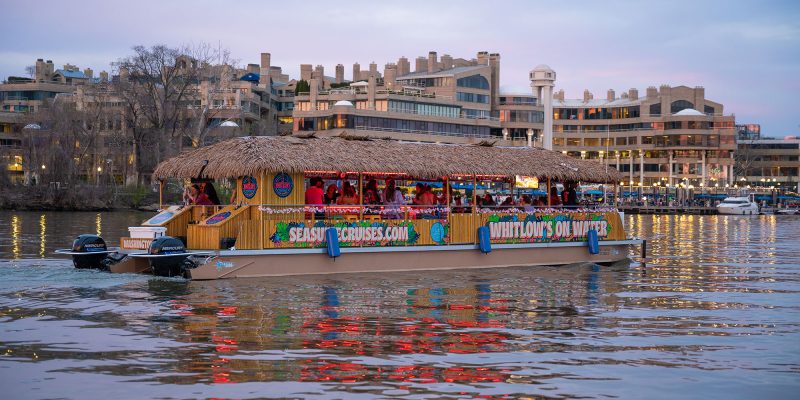
- Group Size: 1 - 48
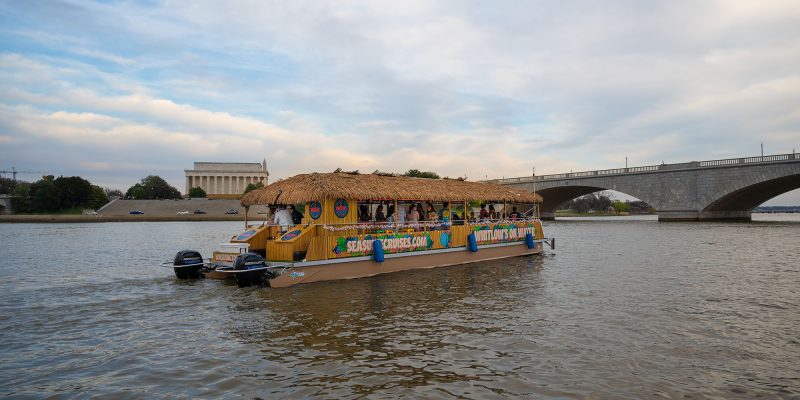
- Hours: 11am-3:45pm Mon-Fri
- Duration: 1 hr
Navy Yard - Weekend Cruises

- Location: Navy Yard
- Hours: Fri (evening) - Sun
- Duration: 2 hrs

- Hours: Fri - Sun
Have an idea for a customized private event that you don’t see on our website? No problem! Contact us to let us know what you’re thinking and we’re happy to try and accommodate.
BOOKING CALENDAR:
» Contact Us
Get Together, Get Away!
- Regent Seven Seas Cruises
Best of Moscow by high speed train
By shuguley , February 15, 2014 in Regent Seven Seas Cruises
Recommended Posts

Sure would appreciate someone who has taken "Best of Moscow by high speed train" from St. Petersburg could please share their impressions of this shore excursion. From the description this sounds like a very long day.
Wondering how the 4 hour train trip was in terms of accommodations, etc. Also what time did you leave the ship and what time at night did you return? Were both legs of the trip on the high speed rail (I read that slower trains also travel the same tracks)?
My wife and I are considering this excursion. We thought that if we are making all the effort to go to Russia then how could we pass up going to Moscow, walking in Red Square, seeing St. Basil, etc.
Link to comment
Share on other sites.
If you are considering this on the 2015 June Baltic cruise on Voyager; my suggestion is don't. There is so much to do in St. Petersburg and although a train is one of my favorite ways to travel the time would be far better spent in St. P.
Thanks for the advice. Yes, this would be on the Voyager during the 2015 season but not yet sure exactly which cruise.

We did the Moscow excursion "on a different luxury line", but from your brief description it sounds very much like the same trip, so I will operate on that assumption. It is a VERY long day! We left the ship at 5:30 AM and returned at 12:30 AM. The highspeed train trip is comfortable, and while they call it "Business Class" it does not compare well to the equivalent class on say Rail Europe. When we did it in 2011, we did have highspeed both ways, and the trip back seemed much longer as the adrenaline and excitement had worn off!:D
Moscow itself is not that terribly different from any other big city in the world, but this Cold War kid never thought he would ever stand in Red Square, never mind walk the grounds of The Kremlin, or tour The Kremlin Palace, or see (but not visit) Lenin's Tomb, or visit The Armoury. But he did, and he loved every minute of it! Yes, it is a long day, and you barely scratch a scratch on the surface, but it is worth it. There is a tremendous amount to see in St. Petersburg, but every Baltic cruise goes to St. Petersburg, so you can go back if you choose to. Not every cruiseline offers you the chance to see Moscow.

I have not personally done this tour, but our last time in St Petersburg, the private guide that we hired for a day was leading the regent tour to Moscow on the high speed train the next day. He said it was way better than the previous alternative, which was flying to Moscow and back. He said that you actually got to Moscow faster because you didn't have to deal with airline checkin etc. it did seem like a very long day to me, and there is so much to see and do in st. Petersburg that I didn't consider doing it.
countflorida
We toured to Moscow from St. Petersburg via the hi-speed SAPSAN train last September, from a Baltic cruise on the Oceania Marina. You need to have a two-night, three day port call in St. Petersburg to take this tour because the tour typically leaves the ship around 5:00 - 5:30 AM and doesn't return until after midnight the next day. We didn't take the ship's tour; we made private arrangements with TravelAllRussia for three days of touring, the first and third days in St. Petersburg and the second day the tour to Moscow by train. Our cost for the private tour for three days was about the same as what the ship charged for the excursion to Moscow alone. There are a number of private tour agencies that operate in St. Petersburg and offer the Moscow train tours; we would strongly recommend them over the ship's tours.
All three days had private guides with car and driver. The second day, the driver picked us up at the ship and took us to the train, but we were alone on the train, and met in Moscow by the guide on the station platform. After our tour and dinner, we were brought back to the train and after the return train trip met by the driver and taken back to the ship. Because you are alone on the train you must have your own Russian visas.
If this is your first visit to St. Petersburg, I would agree there is much more to see there. We found Moscow somewhat a disappointment, particularly Red Square. The Kremlin and the cathedral in Red Square were also worth seeing. But the best thing we saw was the Moscow subway! I worked for the Washington Metro system back in the 1980s as it grew from 40 to 80 miles and although I was in the computer area, I learned a lot about the challenges of running a subway system. We used the Moscow system to get across the city from where we had dinner to the train station, and I was amazed at the cleanliness', speed of operation, the short headways maintained, and the courtesy of everyone involved. A very impressive experience!
We had been to St. Petersburg before, and so had the time to take a day and go to Moscow. Also, I really like trains, and the SAPSAN is a German train set running on Russian rails. Seats are like first class domestic air, spacious but not too plush or comfortable, but with enough room. Not too much recline, and almost 8 hours on the train in two shots is a lot for an old man. They come through and sell drinks, candy, etc. but the sellers don't speak English and no one around us helped, so we had just poor coffee once coming, and brought stuff with us for the trip back. Not too much to see from the train either, particularly on the return when it is night the whole way.
If you decide to go, take a private tour and avoid the overly expensive ship's tour. I'm glad we did it, but wouldn't bother to repeat the tour; we've seen Moscow.
Thanks so much to all of you for the thorough and thought insight. Yhe information you have provided is most helpful.
countflorida: Your detailed post is very helpful. We are not quite ready for a Baltic cruise but should do so within a year. Time enough to do our pre travel research, bookings and visa gathering.:) Thank you!

Emperor Norton
Sure would appreciate someone who has taken "Best of Moscow by high speed train" from St. Petersburg could please share their impressions of this shore excursion. From the description this sounds like a very long day. Wondering how the 4 hour train trip was in terms of accommodations, etc. Also what time did you leave the ship and what time at night did you return? Were both legs of the trip on the high speed rail (I read that slower trains also travel the same tracks)? My wife and I are considering this excursion. We thought that if we are making all the effort to go to Russia then how could we pass up going to Moscow, walking in Red Square, seeing St. Basil, etc.
I did this on Seabourn. IMO DONT. Take Aeroflop (er Aeroflot). The train has non folding seats where you are literally knee to knee with your fellow passenger (facing each other). Further they don't believe in air conditioning. It's also the worlds slowed bullet train. I think I would have found more enjoyment wandering around the St. Petersburg and Moscow airports.
Countflorida,
This is a little off topic,, however we had planned a river cruise in Russia but decided we would rather stay on land and have booked about two weeks with Travel-All-Russia using the private guide and driver. I'm curious as to how you found them as a tour company.
The guides they provided were fine. We had a different guide each of the days in St. Petersburg, but both were flexible, pleasant, knowledgeable and spoke English very well, as did the guide in Moscow, incidentally. She was a bit aloof, distant, not too friendly, but otherwise fine. In fact, she was the one who suggested taking the Metro, which unexpectedly became one of the highlights of the Moscow excursion. If I have a complaint with AllTravelRussia, it is with their plan and its execution (more later).
I had requested emphasis on World War II (in Russia, the Great Patriotic War) sites and info. In scheduling us, they weren't careful about dates and a couple of the sites we wanted to see were scheduled on the third day, after we'd been to Moscow. But both sites were closed that day of the week, and that info was readily available, right on web sites describing them. Also, the included meals (lunches in St. Pete, dinner in Moscow) were not what we asked for: light meals with some choices, so we could avoid things we didn't like and choose things we did like. My request was ignored; we were given full Russian meals with a fixed menu, no choice. On the first day, a fish dish was the entre, but I am allergic to fish. Fortunately, I had the e-mail I'd sent with me and showed it to the guide, and she was able to change my entre to chicken, which was very good actually. But we didn't want a 3-4 course lunches or dinner (in Moscow). We had the guide drop the lunch the third day, although we never got any credit or refund. But, particularly in contrast to the ship's tours, the prices were so reasonable we didn't worry too much about it.
The people who were on the ship's tour to Moscow saw us boarding the same train for which they were forced to queue up and wait on the way back, and asked us what we had done. I was candid and open so they were not happy when I explained what we had arranged and particularly what it had cost. Also, when we returned to the ship, we found they had laid on a late supper for those who had gone to Moscow, so up we went and had something. Well, it turns out the late supper was supposed to be just for those on the ship's tour, but we and others on 'independent' tours, there were a dozen or more of us, crashed the party, actually got there first, and they didn't realize it until the larger group arrived and there weren't enough tables/places set. By that time, the 'independents' had all gotten served and were eating; what could they do?
A couple from the larger group sat down with us and asked us about our tour, and they were the ones I told about our arrangement and its cost. They turned to others who’d been with them and announced the details, loudly enough so the whole room heard, which started a lot of bitching and complaining. I gathered they weren't very happy with the ship's tour to begin with, and this was the straw that broke the camel's back. We finished up and beat it out of there, but overheard later that one of the excursion staff came to check on something and ran into a real mess. I caught a cold on the trip, which forced me to bed the second day following in Tallinn, so by the time we reappeared we heard about the contretemps' but apparently no one recalled who started it, thankfully.
Because of what happened to us, I would probably not use AllTravelRussia if I were to go again, or if I did, I would be sure to get confirmation of every detail of the tour. They do have good reviews generally, and we were certainly helped by their visa department and liked the guides and drivers. Their weakness, I say now with full 20:20 hindsight, is that once the sales person who plans the tour, sells it to you and collects your money, he (or she) transfers the plan to their Russia office for implementation; there is no follow-up to make sure it gets done right. And that is where our problems arose; we paid for a custom tour but got a standard package with a few destinations switched, and no one checked them out, even to see when they were open the day we were scheduled to go. If you check every detail that’s important to you, it should be OK, but that’s a hell of a way to have to do business, in my opinion.
Thank you for the 20/20 hindsight observation on your Russian tour operator, and better priced than the ship's excursion cost.
Thanks very much for the feedback.
We had the same experience as you so far as price. We originally booked a Viking Cruise but, hearing some things about the river cruises that made us unhappy, looked into other options. T-A-R cost the same or less than a cruise and had us in hotels for 11 days. We opted for the private tour. They have three tour levels, based on hotels. We originally opted for the four star as it did not cost much more than the three star hotels. Finally we decided to throw it all in and upgraded to five star. In Moscow we will be at the newly opened Kempinsky which is two blocks from Red Square. In St. Petersburg it is the Grand Hotel Europe, one of the most vaunted luxury hotels in Russia. Location is important for us as the tours use up only part of the day so being in the center of everything for our independent touring is important. As with many other cities, the less you pay, the farther out of the center of town you are.
We have been working with our salesman in D.C. and he seems to get back to us with the changes we want. He recently returned from Russia so is up on everything. When I asked they said they paid the full TA commission if I wanted so I got my usual TA on board so he is watching our back and giving us that extra level of comfort. He also set up our air, which I know pays him little or nothing, and got us business class for much less than T-A-R wanted for economy, though it took working for a while with a consolidator. He's happy to get his 10 percent on this trip without having booked it. He also took care of the trip insurance. We've been doing a lot of research on the CC sister site Trip Advisor and will write a report there. We will, I guess, become a source of info for CC members after having spent 5 days in Moscow and 6 in SP.
- 4 months later...

scubacruiserx2
Anybody considering a day trip to Moscow from St. Petersburg on the Sapsan may want to look at our travelogue filled with pictures.
http://boards.cruisecritic.com/showthread.php?t=1927687

Very informative. Thanks dor sharing. Jeff
Please sign in to comment
You will be able to leave a comment after signing in
- Welcome to Cruise Critic
- ANNOUNCEMENT: Set Sail Beyond the Ordinary with Oceania Cruises
- ANNOUNCEMENT: The Widest View in the Whole Wide World
- New Cruisers
- Cruise Lines “A – O”
- Cruise Lines “P – Z”
- River Cruising
- Cruise Critic News & Features
- Digital Photography & Cruise Technology
- Special Interest Cruising
- Cruise Discussion Topics
- UK Cruising
- Australia & New Zealand Cruisers
- Canadian Cruisers
- North American Homeports
- Ports of Call
- Cruise Conversations
Announcements
- New to Cruise Critic? Join our Community!
Write Your Own Amazing Review !

Click this gorgeous photo by member SUPERstar777 to share your review!
Features & News

LauraS · Started 5 hours ago
LauraS · Started Monday at 09:50 PM
LauraS · Started Monday at 05:37 PM
LauraS · Started Monday at 04:09 PM
LauraS · Started Monday at 06:02 AM

- Existing user? Sign in OR Create an Account
- Find Your Roll Call
- Meet & Mingle
- Community Help Center
- All Activity
- Member Photo Albums
- Meet & Mingle Photos
- Favorite Cruise Memories
- Cruise Food Photos
- Cruise Ship Photos
- Ports of Call Photos
- Towel Animal Photos
- Amazing, Funny & Totally Awesome Cruise Photos
- Write a Review
- Live Cruise Reports
- Member Cruise Reviews
- Create New...
Moscow Boat Tour
- Page active

Description
See all the gems of historical and cultural center of the capital in short time and without traffic jams or tiresome walking.
Depending on the itinerary and duration of the Moscow River boat trip, the tour can be 3 or 5 hours.
Highlights of the tour
- St Basil’s Cathedral;
- Stalin skyscraper on Kotelnicheskaya (Tinkers) embankment;
- The Kremlin;
- “House on the Embankment” Stalin skyscraper;
- Monument to Peter I;
- The Central House of Artists;
- Christ the Savior Cathedral;
- Gorky Park;
- Moscow State University;
- Russian Academy of Sciences;
- Luzhniki stadium;
- Novodevichy Monastery;
- Kiev railway station;
- Europe Square;
- Moscow City Hall;
- Government House;
- Expocentre Exhibition Complex;
- and other famous sights.
You will learn about the different epochs of the city from the foundation in 1147 till Soviet times of 20 th century.
Moscow River
Moskva river has the form of a snake and is the main waterway of Moscow, consisting of a cascade of reservoirs. Within the city, Moskva river is 80 km long, 120 m - 200 m wide and up to 14 m deep. The narrowest part of the river is the Kremlin area in the city center, and the most extensive is around the Luzhniki Stadium in the south.
Bridges in Moscow
Undoubtedly, bridges and embankments are among the most scenic spots and main attractions of Moscow. Plus, they are so romantic.
- Bolshoy Kamenny Bridge – Great Stone Bridge – is the main bridge of Moscow . The first stone bridge was constructed here in the 17th century.
- Patriarshy Bridge is one of the youngest pedestrian bridges, built in 2004. The bridge connects the iconic Christ the Saviour Cathedral with funky Bersenevskaya embankment, extremely popular place among locals for its trendy art galleries, cafes and panoramic views. Patriarshy Bridge used to be a shooting location for ex-Russian President Dmitry Medvedev's New Year speech to the nation.
- Borodinsky Bridge, erected in honor of the 100th anniversary of the glorious victory in the Battle of Borodino (which every Russian kid knows about), a fierce legendary battle during the Russo-French war of 1812.
- Bagration Bridge one of the pedestrian bridges with most picturesque views of the Moskva River with its numerous upper-level observation platforms. The bridge was erected to celebrate the 850th anniversary of Moscow city in 1997.
- Krymsky Bridge used to be in Top 5 Europe’s longest bridges some 100 years ago. The bridge got its name after the ancient Krymsky ford which Crimean Tartars used to invade Moscow in the 16 th century.
Embankments of Moscow
Moscow river boats 37 embankments, the most popular being Kremlevskaya, Sofiyskaya, Pushkinskaya, Vorobyovskaya and Kolomenskaya.
You can get the most spectacular views of the Kremlin from Kremlevskaya and Sofiyskaya embankments.
- Pushkinkaya embankment is the most romantic in Moscow. It meanders along Gorky Park and Neskuchnyi garden and is rich for all kinds of entertainment as well as cozy nooks, including Olivkovy beach, the famous Zeleny theater as well as a pier for river cruisers.
- Vorobyevskaya embankment is part of Sparrow Hills nature reserve. This place opens a beautiful panorama of the river and city from the observation deck and is considered to be the place for taking serious decisions in life.
- Embankment in Kolomenskoye Museum-Reserve has a special charm due to its peculiar geographical relief. The boat trip around Kolomenskoye would be the most peaceful in your life.
- Taras Shevchenko embankment is popular among photographers for its modern Moscow City skyscrapers. Highly recommended for your night boat trip.
- Embankments of Moscow are the pride of the capital. A distinctive feature of each of the promenades is its architecture and beautiful views. In addition, almost all the embankments of Moscow have a rich history and a lot of notable buildings.
Different epochs
Taking a walk along the Moskva River by boat, you will witness the architecture of Moscow from different eras and styles. Archaeological studies indicate that already in the XI century there stood a fortified settlement on Borovitsky hill, which is now called the Kremlin. Little fortress could not accommodate all the residents of the rapidly growing city, and the Grand Duke ordered the construction of a new Kremlin, larger than the former.
Boat trip around Kolomenskoe Park
Moscow river boat trip starts from the pier Klenovy (Maple) Boulevard and provides reat views of Nicholas Perervinsky monastery.
Nicholas Perervinsky monastery was founded at the time of the Battle of Kulikov (1380). The monastery, got its name from the surrounding area – “Pererva”, which can be translated like “tear off” and because of the location – here it abruptly changed its course, turning to Kolomna, standing on the opposite bank.
Nowadays Kolomenskoye is State Art, Historical, Architectural and Natural Landscape Museum-Reserve, which doors are open to everyone who wants to get in touch with the ancient history of Russia.
Take a break from the big city hustle in the shady parks and gardens of the Kolomenskoe Museum-Reserve. Don’t miss a wonderful Church of the Ascension and Tsar Alexey’s Palace in Kolomenskoye!
Monasteries and temples
- Novospassky Monastery
- Founded in the 13th century on the site where now is located the Danilovsky monastery. After a few decades, in 1330, Ivan Kalita moved the monastery onto the Borovitskii hill of the Kremlin. However, in the 15th century, Spassky Monastery again moved, this time to a more spacious place on Krasnoholmskaya waterfront.
- Church of St. Nicholas in Zayaitskom
- Erected in the middle of the XVIII century in baroque style. The building survived after the 1812 fire, but the utensils were destoyed. Parishioners collected donations and restored the temple on their own. In Soviet times, it was closed and re-opened only in 1992.
- Cathedral of Christ the Savior
- The church was originally erected in honor of the victory over Napoleon and was being under construction for long 44 years. Notoriously demolished in 1937 to be a giant swimming pool under open sky. The current building was constructed in 1990s. It is the tallest and one of the largest Orthodox churches in the world.
- The temple was built in 1679-82, during the reign of Tsar Fedor Alekseevich, in late Muscovite Baroque style and can be characterized as bonfire temple. Each gable is a symbol of a heavenly fire.
- Novodevichy Convent
- The most famous concent and monastery in Moscow, presumably founded in 1524. Novodevichy’s status has always been high among other monasteries, it was in this monastery where the women of the royal blood, the wives of Tsars and local rulers of Moscow were kept in prison as nuns.
- St. Andrew’s church (male acts as Compound Patriarch of Moscow)
- St. Andrew’s church stands right on the slopes of the Sparrow Hills, on the way down to the Moskva River, on the territory of the Nature Reserve “Sparrow Hills”. The monastery is small in size but is very cozy. It’s situated in a quiet courtyard surrounded by temples, fruit trees and flowers.
What you get:
- + A friend in Moscow.
- + Private & customized Moscow river cruise.
- + An exciting pastime, not just boring history lessons.
- + An authentic experience of local life.
- + Flexibility: changes can be made at any time to suit individual preferences.
- + Amazing deals for breakfast, lunch, and dinner in the very best cafes & restaurants. Discounts on weekdays (Mon-Fri).
- + A photo session amongst spectacular Moscow scenery that can be treasured for a lifetime.
- + Good value for souvenirs, taxis, and hotels.
- + Expert advice on what to do, where to go, and how to make the most of your time in Moscow.
Write your review

IMAGES
VIDEO
COMMENTS
Embark on a captivating Brunch Cruise on the Potomac River with Boomerang Boat Tours! Indulge in a delicious brunch buffet catered by Northside Social, sip on cocktails from our premium open bar, and groove to tunes spun by our live DJ. ... a 100-passenger party yacht, an 80-passenger pirate ship, or a 60-passenger party boat. All three of our ...
Potomac Tiki Club is DC's first and only tiki boat bar on the Potomac River! Fitting up to 18 people, this floating tiki bar in Georgetown is the best way for friends, families, and colleagues to sip, cruise, and celebrate out on the water!. Tikito is a private tiki boat equipped for 1-6 passengers that sets sail out of Navy Yard. Brand new to DC, this private boat charter is perfect for ...
You'll travel along the Potomac River while taking in breathtaking views of the Washington monuments and famous landmarks. Sightseeing cruises depart from Transit Pier (970 Wharf St SW). Dining cruises (all others) depart from Pier 4 (580 Water St SW). Learn about Getting to The Wharf, including metro and parking directions.
About Us. Capitol River Cruises is a small family owned and operated Tour Boat Agency that has been cruising on the Potomac River in Washington, DC for 29 years! We offer Sightseeing Boat Tours, Crab Feast Charters, Custom Private Charters and various types of Specialty Cruises. Our everyday Sightseeing Cruises are 45 minutes long.
650 Wharf St SW. Washington, DC,D.C.20024. U.S. BOOK NOW. Top-rated Washington DC boat tour company offering private, captained cruises on the historic Potomac River. Sightsee the historic landmarks or relax in the sun.
Specialties: Come join us for one of our legendary nightlife excursions. Get ready to cruise along the Potomac River on our double-decker Boomerang Party Yacht! This is truly the first of its kind! Riders will dance the night away on our nightlife party cruise with great DJs, full bar, and frozen tropical drinks for the most exclusive party on the river. So break out your sea legs, hop aboard ...
Board a party yacht for a 2-hour cruise on the Potomac River. The vessel is outfitted with a full bar, dance floor, three restrooms, and plenty of room for sightseeing throughout. See the memorials lit up at night. Enjoy a fun night out with plenty of time to hit the party scene on shore. Evening cruise on the Potomac River.
Wednesday, April17. Thursday, April18. Friday, April19. Potomac River Weekend Tour Georgetown Waterfront Park 11:00am. Potomac River Weekend Tour Georgetown Waterfront Park 1:00pm. Potomac River Weekend Tour Georgetown Waterfront Park 3:00pm. Potomac River Weekend Tour Georgetown Waterfront Park 5:00pm.
Pickup details. Location Name: Washington Harbour (Georgetown Waterfront) Location Address: 3100 K Street NW Washington, DC 20007 Directions: As you walk down 31st Street, the Boomerang yacht will pull up at the end of the dock, to your left. Each commercial vessel has a strict 15-minute boarding window at the Georgetown dock.
After form submission, you'll receive a customized offer from an experienced Account Manager matching your event vision. or Call 1-866-302-2469. Minimum of 20 guests required for event planning. By submitting my information, I agree to be contacted about services and offers from the Hornblower Group Family of Companies, I agree to the Terms ...
About Party Boat DC/Capital Riverboats. Party Boat DC formerly known as Capital Riverboats is the funnest option on the river in the capital bringing you a great mix of fun and sightseeing aboard the largest cycle boat on the Potomac, with its 18-person capacity and 12 pedal stations. Our team of experts has put together a 90-minute pedal boat ...
Potomac Tiki Club. D.C.'s "first tiki cruise" lets patrons buy booze on board, or opt for an $8 corkage fee for wine and Champagne. BYO food or purchase small snacks. Price: $45-$60 for parties of 8 to 18 out of Georgetown. A smaller thatched-roof sibling out of Navy Yard fits six and runs $350-$425.
Party Boat DC, formerly known as Capital Riverboats, offers a unique blend of entertainment and scenic exploration on the Potomac River since 2019. Our vessel, the largest cycle boat in the area, boasts an 18-person capacity and 12 pedal stations, ensuring an exciting and active adventure for all guests.
For the family pirate themed boat - the drinks are decently priced of $2 for a solo cup of coke, etc and free water is available within a cooler towards the back of the boat close to the bathrooms. I am not sure if the pirate who is driving a separate boat (speed boat) is always part of the pirate ship excursion.
Whitlow's Meets Party Cruise. The only thing better than a bar on the waterfront is a bar on the water! In collaboration with Sea Suite Cruises, Whitlow's on Water is the first bar in Washington, D.C. to expand to the Potomac River. As the largest vessel in the Potomac Tiki Club fleet, she brings a whole new WOW factor to DC.
Top 10 Best Potomac River Cruise in Washington, DC - April 2024 - Yelp - Potomac Paddle Club - Navy Yard, City Cruises Washington DC - Pier 4, Potomac Riverboat Company, Capital Elite Private Yachts, Embark, Spirit of Washington, Spirit of Mount Vernon/Mount Vernon Excursions, Capitol River Cruises, Boomerang Party Yacht, DC Ducks
Top 10 Best Potomac River Cruise in Alexandria, VA - April 2024 - Yelp - Potomac Riverboat Company, City Cruises Alexandria Water Taxi, City Cruises Washington DC - Pier 4, Potomac Paddle Club - Navy Yard, Spirit of Mount Vernon/Mount Vernon Excursions, Spirit of Washington, Capital Elite Private Yachts, Embark, Boomerang Party Yacht, DC Ducks
Asia River Cruises : Speak to an agent for more information. Call us toll free at: (800) - 543 - 4504 (888) - 863 - 1212. or . from outside the US at: 01 (845) 623 - 6279. Email us at: [email protected] . Imperial Waterways of Russia 12-Night Cruise Moscow to St. Petersburg (or reverse) ...
Sure would appreciate someone who has taken Best of Moscow by high speed train from St. Petersburg could please share their impressions of this shore excursion. From the description this sounds like a very long day. Wondering how the 4 hour train trip was in terms of accommodations, etc. Also wha...
This video shows a breathtaking scenery of Moscow city from a Cruise.. I enjoyed the boat ride for 2 hours.. Moscow river cruise is one of the best excursion...
Moskva river has the form of a snake and is the main waterway of Moscow, consisting of a cascade of reservoirs. Within the city, Moskva river is 80 km long, 120 m - 200 m wide and up to 14 m deep. The narrowest part of the river is the Kremlin area in the city center, and the most extensive is around the Luzhniki Stadium in the south.